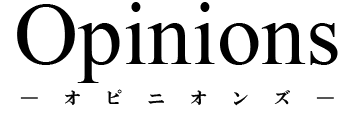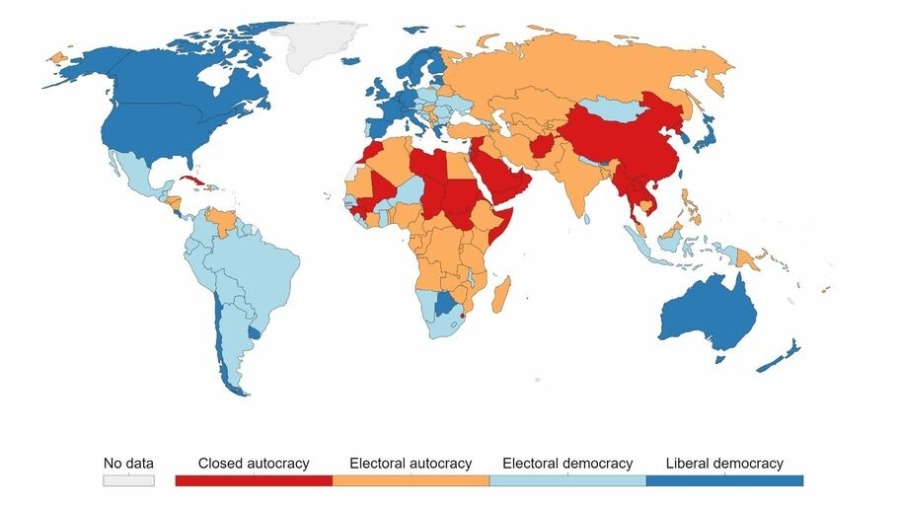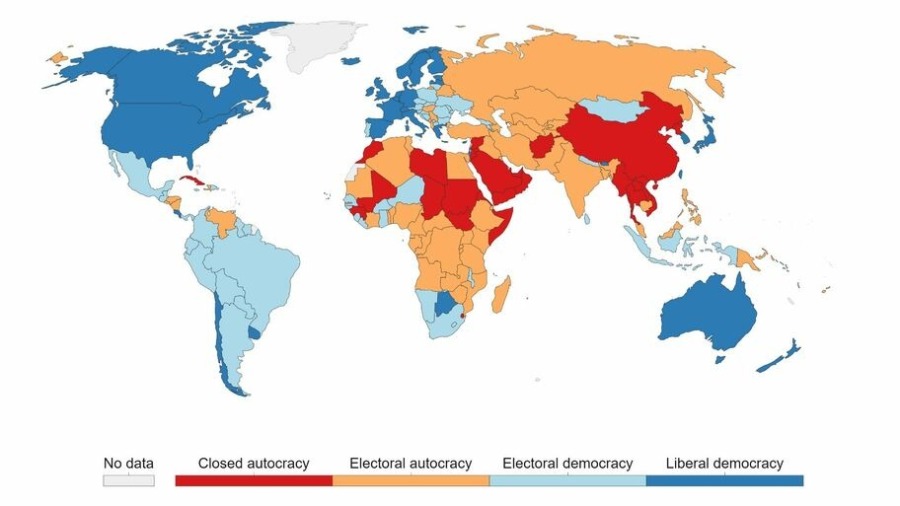
- 記事一覧
- 橋本 俊明の記事一覧
- 民主主義の危機について On the Crisis of Democracy
民主主義の危機について On the Crisis of Democracy
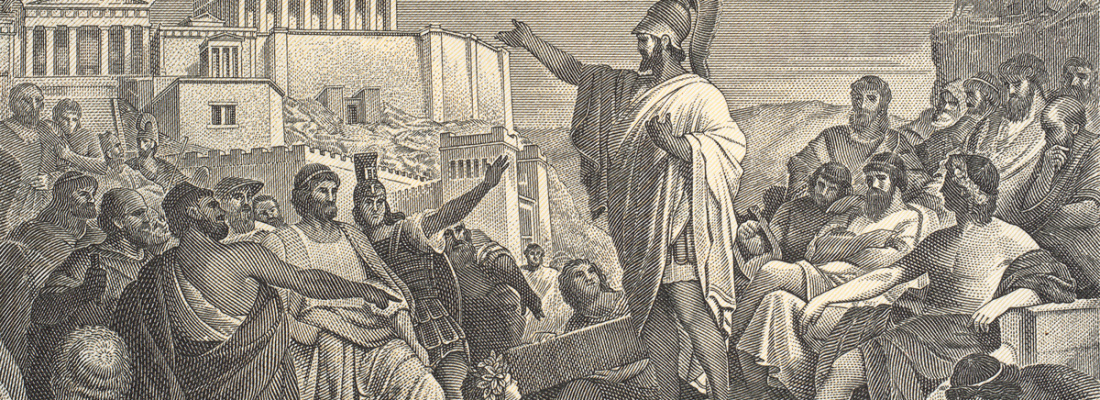
日本語は英文の後に掲載しています。
When you read ILL WIND by Larry Diamond, the original name of the Japanese title Democracy Invaded, you can feel the passion for the author even though he is a scholar. "ILL WIND" refers to the rise of populism against the background of disparities and depression within the country, and in international relations, "hegemonic states" such as Russia and China. Democracy faces two kinds of challenges.
Democracy has universal requirements for civilization, "respect for human rights, freedom of speech, equality of all human beings, and the rule of law," as the Dalai Lama advocated in 1999. For example, if there is even one approach, as "do not respect human rights," "control speech," "there is a hierarchy among human beings," and "the law is not protected by circumstances," it would not be called a mature society. This is a universal sense of ethics, and everyone should be able to understand that it is necessary for human society, even if it leaves Western standards. Such universal laws overcome cultural differences.
The archetype of democracy is simple: if you want to do something collectively, you need to listen to everyone. It is also necessary that the burden and benefits are balanced. As an extension of this simple way of doing things, as the group grows larger, a democratic system is established in a certain formality. Minimal democracy refers to a system of government in which the people can regularly elect and "change" their leaders in free and fair elections. This regime change is an important point in protecting democracy. On the other hand, if there is no change of government, corruption will inevitably occur. This is why we need an opposition party.
Democracy has existed for a long time, but it has been challenged from various quarters many times over the years. As Thomas Hobbes advocates, when a group grows larger, a " the war of all against all " arises, giving birth to a "leviathan" (transcendent with absolute authority) to avoid the inevitable struggle. And when the "Leviathan" becomes powerful, it invades and subjugates the surrounding people. However, the people who have been placed under their capitulation eventually revolt and return to their democratic form. Humanity has been engaged in this struggle over and over again for a long time. In modern times, as envisioned by Hegel and other philosophers, the completion of a democratic form of government was approaching.
During this period, disparities arose between the rest of the world, where civilization flourished earlier, and Western-only democracies were sometimes attacked as highly deceptive. Certainly, since democracy advocates equality for "all" people, colonial rule and slavery are incompatible with democracy. However, on the other hand, it is not permissible to deviate from the conditions of democracy such as "respect for human rights, freedom of speech, equality of all human beings, and the rule of law" by respecting cultural differences. Religious customs naturally fall into this category. Civilization needs to preserve its own characteristics, but it is unjust for humanity to deviate from the conditions of democracy: respect for human rights, freedom of speech, equality of all human beings, and the rule of law.
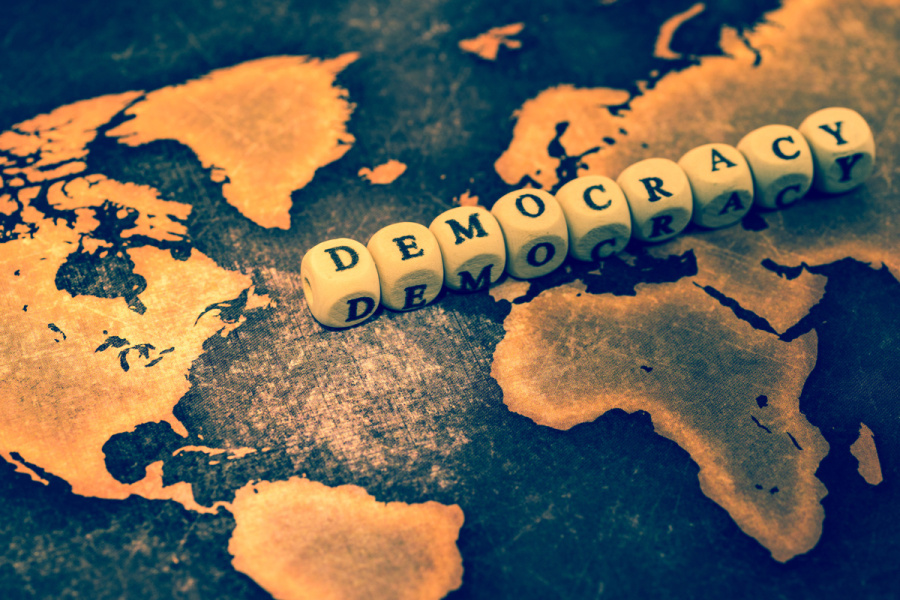
Democracy continues to face challenges from home and abroad. There is a populist challenge in the wake of domestic disparity and social inequality. Specifically, it is a challenge from the far right and the far left. In recent years, there has been a lot of populism targeting foreign workers. It takes advantage of the "fear of different cultures" inherent in human beings and loudly advocates the exclusion of foreigners. Populism targets foreign workers, but on the contrary, it often implements a scattering economic policy within the country. It's about gaining short-term popular support. In response to such challenges, we need to protect democracy, eliminate discrimination at an early date, and advance policies that are open to foreigners.
On the other hand, it is also true that democracy is open to the public, making it easier for authoritative forces to take over. In other words, there is no regulation, but it depends on the common sense of the people who support it. Therefore, even if a democratic system is adopted for the time being, there is a danger that it will eventually be lost to authoritarian forces. In Egypt, which overthrew the dictatorship by the Arab Spring, the Islamic political organization "Muslim Brotherhood" that won the election advocated Islamic fundamentalism, inviting a coup d'état by the military again. In Thailand as well, the political party supporting former Prime Minister Thaksin Shinawatra has won every election, followed by a military coup d'état against it, a transition to civilian rule, an election, another victory for the Thaksin faction, and a coup d'état. These show that democratic elections do not always create favorable governments, and that democracy can easily be hijacked by hegemonism.
Challenges from outside the country are even tougher.
The figure shows the classification of a group led by Anna Rahman of the V-Dem Institute, an independent research institute in Sweden. The political system is broadly divided into four types: closed dictatorship, electoral dictatorship, electoral democracy, and liberal democracy. Among them, countries that belong to blue-colored, electoral democracy and liberal democracy are now becoming a minority.
In Japan, democracy is not something that is acquired at the expense of the people, but is something that has been given to us from the outside. Its foundation is not strong. It is necessary to reject challenges to democracy from inside and outside Japan and build a strong democracy. In order to do so, the opposition, the media, and the general public need to think again from the perspective of local democracy and create a mature society.
ラリー・ダイアモンド著「侵略される民主主義」原名「ILL WIND=悪い風」を読むと、著者が学者にも関わらず、熱い情熱が伝わってくる。「ILL WIND=悪い風」とは、国内部で格差や不況を背景として、ポピュリズムの台頭があること、また国際間においては、ロシアや中国を始めとする「覇権国家」の勢力が広がっていることを指している。民主主義は2種類の挑戦を受けているのだ。
民主主義は1999年ダライ・ラマが唱えたように、「人権の尊重、言論の自由、すべての人間の平等、法の支配」などの、文明の普遍的必要条件を備えている。例えば、「人権は尊重しない」「言論は統制する」「人間の間には階層がある」「法は状況によって守られるわけではない」などのやり方が一つでもあれば、成熟した社会とは呼ばれないだろう。これは普遍的な倫理観であり、西欧的な基準を離れても、人間社会にとって必要なことであることは、すべての人が理解できるはずだ。このような普遍的な法則は、文化的な違いを乗りこえる。
民主主義の原型は素朴なものである。集団で何かを行う場合、みんなの意見を聞く必要があることだ。そして、負担と給付が釣り合っていることも必要だ。この素朴なやりかたの延長線上で、集団が大きくなるに従って、一定の形式を整えたものが民主主義制度である。最小限の民主主義とは、国民が定期的に自由かつ公正な選挙で指導者を選び、「交代」させる事のできる政府システムを指す。この政権交代は民主主義を守るための重要なポイントだ。反対に政権交代がない場合は必ず腐敗が起こる。野党が必要な理由はここにある。
民主主義は昔から存在したが、長い間に幾度となく、いろいろの方面からの挑戦を受けている。トマス・ホッブスの唱えるように、集団が大きくなると「万人の万人に対する闘争」が起こり、必然的闘争を回避するための「リバイアサン」(絶対的な権限を持つ超越者)を誕生させる。そして、「リバイアサン」が強力になると、周辺の人民を侵略し、隷属させるようになる。しかし、隷属下に置かれた人民は、そのうち反乱を起こし、再び民主的な形態へと帰る。この幾度となく繰り返す闘争を人類は長い間続けてきた。そして、近代に至って、ヘーゲルその他の哲学者の構想の通り、民主的な政治形態の完成へと近づいていったのである。
この間、文明が先行して花開いた西欧とその他の地域との格差が生じ、西欧のみの民主主義は欺瞞性が高いと攻撃される場合もあった。たしかに、民主主義は「すべて」の人に対する平等を唱えているので、植民地支配や奴隷制度は民主主義とは相容れないものである。しかし、その反対に文化の違いを尊重するあまり、「人権の尊重、言論の自由、すべての人間の平等、法の支配」などの民主主義の条件を逸脱することは認められない。宗教的な慣習も当然この範囲に入るのである。文明はそれぞれの特色を保つ必要はあるが、民主主義の条件である「人権の尊重、言論の自由、すべての人間の平等、法の支配」を逸脱することは人類にとって不当なことである。
民主主義は未だに国内と国外からの挑戦を受け続けている。国内の格差や社会的不平等の結果を受けての、ポピュリズムの挑戦がある。具体的には、極右、極左からの挑戦だ。近年では外国人労働者を標的としたポピュリズムが多い。人間の本来持っている「異文化恐怖」を逆手に取り、外国人の排斥を声高に唱えるものである。ポピュリズムは外国人労働者を攻撃対象とするが、バラマキ政策によって、短期的な民衆の支持を得ようとする。我々は、このような挑戦に対しても、民主主義を守り、早期に差別を解消するとともに、外国人にも開かれた政策を進める必要がある。
一方で民主主義は開かれているために、権威的な勢力が乗っ取ることが容易になっていることも確かである。つまり、何らかの規制があるわけでなく、それを支える人民の良識に頼っているのだ。従って、とりあえず民主主義的なシステムを採用しても、そのうち権威主義的な勢力に奪われる危険も多い。アラブの春によって独裁政権を倒したエジプトにおいて、選挙で勝利したイスラム政治組織「ムスリム同胞団」イスラム原理主義を主張し、再び軍部によるクーデターを招いて覇権政治に戻っている。タイにおいても、選挙のたびにタクシン元首相を支持する政党が勝利し、それに反対する軍部のクーデター、そして、民政移管、選挙、再びタクシン派の勝利、クーデターを繰り返している。これらは民主的な選挙が必ずしも、好ましい政府を作るとは限らないこと、そして民主主義は容易に覇権主義に乗っ取られることを示している。
国外からの挑戦はもっと手強い。
図は、スウェーデンの独立研究機関「V-Dem研究所」のアンナ・ラーマンらのグループの分類だ。政治体制を大きく▽閉鎖型独裁▽選挙による独裁▽選挙による民主主義▽自由民主主義――の四つの類型に分けている。この中で、ブルーに色分けされた、選挙による民主主義、自由民主主義に属する国は、今や少数派になりつつある。
日本では、民主主義は民衆の犠牲を払って獲得したものではなく、外から与えられたものである。その基盤は強いとはいえない。内外からの民主主義に対する挑戦を退けて、強い民主主義を作る必要がある。その為には、野党、メディア、一般国民が、地域の民主主義からもう一度考えて、成熟した社会を作る必要がある。

Recently Popular最近よく読まれている記事
-

食べていても痩せる 高齢者終末期のカヘキシア(悪液質)
食べていても痩せる。活発に運動を続けている人なら不思議に思わないが、介護度の高い高齢者にそのようなことが果たして起こるのだろうか。起こるのであれば、それはカヘキシアという病態であれば説明できる。 カヘキシア(悪液質)カヘキシアとは、食欲不振・体重減少・全身衰弱・倦怠感などを呈し、生命予後やQOL(qualit… -

終末期の自然な経過を見極めるとは
長期に渡り胃ろうからの栄養を続けていると、注入した物が食道へ逆流したり、唾液や痰の貯留が増えたりして、吸引を繰り返すことになるが、結局のところ、頻回の吸引も間に合わず、心肺停止状態で発見されることが多い。これでは看取りとは言えない。ここに至るまでの言葉を語れない人の苦しみ。このような事態を避ける智慧… -

自閉症スペクトラムと呼ばれているような障害は、実は障害ではない。生物としての人類のバリエーション(変異)の一つである。
自閉症スペクトラムと呼ばれているような障害は、実は障害ではない。生物としての人類のバリエーション(変異)の一つである。本来は人類の、生息環境に対する適応の一つのあり方だというのが、ニューロダイバーシテイ(脳多様性)という考え方に他ならない(詳しくは正高信男著『ニューロダイバーシテイと発達障害』(北大… -

社会保障分野での普遍主義と選別主義について
介護保険や医療保険では、貧富にかかわらず保険によって9割が給付(自己負担は1割)あるいは、7割が給付(自己負担は3割)される。この様な社会保障の方式は、「普遍主義」といわれている。「普遍主義」は、義務教育や、最近では高等学校の授業料にも適応されている(この場合も裕福な人も貧しい人も同様に無償である)。反… -

医療崩壊
ある日の外来。朝の9時から診察室に座りっぱなしでそろそろ3時間が経過。既に再診患だけではなく、その日の新患も回ってきます。で、そうした中に問題のおじさんがいました。「今、○○クリニックで薬をもらっていまして・・・」「30日分貰っているのですが、お腹が痛くなったので、診てもらいに来ました」「○○先生の紹介… -

綺麗好きにもほどがある。小児白血病の原因の99%は過剰に清潔な環境にある。
私の友人に初孫ができました。女の子でとても可愛く、友人の小さな目に入れても痛くないくらいの溺愛ぶりです。いつもビデオを見せられます。1歳になったところですが、歩くよりもハイハイの方が得意なのか、家の中を這い回っています。何にでも興味があるらしく、ハイハイの途中に有るものは手に取って、次には必ず口に持…
Writer ライター
-
 ジャーナリスト ペンネームジョワキン
ジャーナリスト ペンネームジョワキンジョワキンの記事を見る
-
 ソシエタス総合研究所 研究員Waode Hanifah Istiqomah(ワオデ ハニファー イスティコマー)
ソシエタス総合研究所 研究員Waode Hanifah Istiqomah(ワオデ ハニファー イスティコマー)Waode Hanifah Istiqomah(ワオデ ハニファー イスティコマー)の記事を見る
-
 機械設計士芦田 航大
機械設計士芦田 航大芦田 航大の記事を見る
-
 元芝園団地自治会岡﨑 広樹
元芝園団地自治会岡﨑 広樹岡﨑 広樹の記事を見る
-
 岡山外語学院留学生カーン エムディ マムン
岡山外語学院留学生カーン エムディ マムンカーン エムディ マムンの記事を見る
-
 行政書士板垣 岳人
行政書士板垣 岳人板垣 岳人の記事を見る
-
 Crimson Education教育コンサルタント蘇 暁辰(Xiaochen Su)
Crimson Education教育コンサルタント蘇 暁辰(Xiaochen Su)蘇 暁辰(Xiaochen Su)の記事を見る
-
 神戸大学准教授斉藤 善久
神戸大学准教授斉藤 善久斉藤 善久の記事を見る
-
 ドイツ在住阿部プッシェル 薫
ドイツ在住阿部プッシェル 薫阿部プッシェル 薫の記事を見る
-
 ライター/編集者黒部 麻子
ライター/編集者黒部 麻子黒部 麻子の記事を見る
-
 翻訳家田尻 潤子
翻訳家田尻 潤子田尻 潤子の記事を見る
-
 アブダビ環境庁長官 Environment Agency – Abu Dhabi (ead.gov.ae)シャイカ・サレム・アル・ダヘリ
アブダビ環境庁長官 Environment Agency – Abu Dhabi (ead.gov.ae)シャイカ・サレム・アル・ダヘリシャイカ・サレム・アル・ダヘリの記事を見る
-
 元整形外科医/農園主散木洞人
元整形外科医/農園主散木洞人散木洞人の記事を見る
-
 豊橋技術科学大学パク ミンジョン
豊橋技術科学大学パク ミンジョンパク ミンジョンの記事を見る
-
 生理革命委員会澤田まりあ、山形萌花、山領珊南
生理革命委員会澤田まりあ、山形萌花、山領珊南澤田まりあ、山形萌花、山領珊南の記事を見る
-
 SOMPOケア株式会社藤田 定司
SOMPOケア株式会社藤田 定司藤田 定司の記事を見る
-
 おかやま山陽高等学校橘 里香サニヤ
おかやま山陽高等学校橘 里香サニヤ橘 里香サニヤの記事を見る
-
 ソシエタス総合研究所 研究員坂入 悦子
ソシエタス総合研究所 研究員坂入 悦子坂入 悦子の記事を見る
-
 Hiro山下行政書士国際法務事務所 代表山下裕司
Hiro山下行政書士国際法務事務所 代表山下裕司山下裕司の記事を見る
-
 ソシエタス総合研究所 研究員Niklas Holzapfel ホルツ アッペル ニクラス
ソシエタス総合研究所 研究員Niklas Holzapfel ホルツ アッペル ニクラスNiklas Holzapfel ホルツ アッペル ニクラスの記事を見る
-
 サウンドエンジニアEmre・Ekici エムレ・エキジ
サウンドエンジニアEmre・Ekici エムレ・エキジEmre・Ekici エムレ・エキジの記事を見る
-
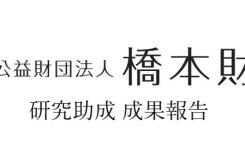 NPO法人岡山県国際団体協議会
NPO法人岡山県国際団体協議会岡山県国際団体協議会の記事を見る
-
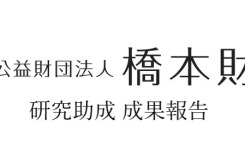 岡山大学 学術研究院 社会文化科学学域 教授東條 光彦
岡山大学 学術研究院 社会文化科学学域 教授東條 光彦東條 光彦の記事を見る
-
 福岡大学 名誉教授田村 和夫
福岡大学 名誉教授田村 和夫田村 和夫の記事を見る
-
 ソシエタス総合研究所 研究員相川 真穂
ソシエタス総合研究所 研究員相川 真穂相川 真穂の記事を見る
-
 一般社団法人京都総合科学研究所 アドバイザー松村 道郎
一般社団法人京都総合科学研究所 アドバイザー松村 道郎松村 道郎の記事を見る
-
 ワラム株式会社 代表取締役加藤 侑子
ワラム株式会社 代表取締役加藤 侑子加藤 侑子の記事を見る
-
 岡山市立操南中学校 教諭/NPO法人国際協力研究所・岡山(ICOI) 副代表理事竹島 潤
岡山市立操南中学校 教諭/NPO法人国際協力研究所・岡山(ICOI) 副代表理事竹島 潤竹島 潤の記事を見る
-
 新西横浜街の予防医療ケア研究室 保健師・看護師・元先端バイオ創薬ベンチャー取締役五十嵐 直敬
新西横浜街の予防医療ケア研究室 保健師・看護師・元先端バイオ創薬ベンチャー取締役五十嵐 直敬五十嵐 直敬の記事を見る
-
 共著橋本俊明・秋吉湖音
共著橋本俊明・秋吉湖音橋本俊明・秋吉湖音の記事を見る
-
 ライター菊池 洋勝
ライター菊池 洋勝菊池 洋勝の記事を見る
-
 大東文化大学国際関係学部・特任教授 高崎経済大学経済学部・非常勤講師 国際ビジネス・コンサルタント、博士(経済学)江崎 康弘
大東文化大学国際関係学部・特任教授 高崎経済大学経済学部・非常勤講師 国際ビジネス・コンサルタント、博士(経済学)江崎 康弘江崎 康弘の記事を見る
-
 ソシエタス総合研究所 研究員秋吉 湖音
ソシエタス総合研究所 研究員秋吉 湖音秋吉 湖音の記事を見る
-
 SOMPOホールディングス株式会社 課長代理足立 伸也
SOMPOホールディングス株式会社 課長代理足立 伸也足立 伸也の記事を見る
-
 富士通株式会社 第三ファイナンス事業本部 シニアマネージャー安留 義孝
富士通株式会社 第三ファイナンス事業本部 シニアマネージャー安留 義孝安留 義孝の記事を見る
-
 EDAS(イーダス)理事長田村 拓
EDAS(イーダス)理事長田村 拓田村 拓の記事を見る
-
 監督・プロデューサー湯浅 典子
監督・プロデューサー湯浅 典子湯浅 典子の記事を見る
-
 日本経済大学 准教授山下 誠矢
日本経済大学 准教授山下 誠矢山下 誠矢の記事を見る
-
 人と医療の研究室 代表池尻 達紀
人と医療の研究室 代表池尻 達紀池尻 達紀の記事を見る
-
 一般社団法人飛島学園 代表理事堂野 博之
一般社団法人飛島学園 代表理事堂野 博之堂野 博之の記事を見る
-
 ニッセイ基礎研究所 生活研究部 主任研究員、ヘルスケアリサーチセンター・ジェロントロジー推進室兼任金 明中
ニッセイ基礎研究所 生活研究部 主任研究員、ヘルスケアリサーチセンター・ジェロントロジー推進室兼任金 明中金 明中の記事を見る
-
 医療法人財団足立病院 理事長、社会福祉法人あだち福祉会 理事長畑山 博
医療法人財団足立病院 理事長、社会福祉法人あだち福祉会 理事長畑山 博畑山 博の記事を見る
-
 教育研究家、合同会社ライフ&ワーク代表妹尾 昌俊
教育研究家、合同会社ライフ&ワーク代表妹尾 昌俊妹尾 昌俊の記事を見る
-
 ハーバード大学ベス・イスラエル・ディーコネス・メディカルセンター、高度消化管/最小侵襲外科フェロー中元 啓太郎
ハーバード大学ベス・イスラエル・ディーコネス・メディカルセンター、高度消化管/最小侵襲外科フェロー中元 啓太郎中元 啓太郎の記事を見る
-
 ソシエタス総合研究所 主任研究員井上 登紀子
ソシエタス総合研究所 主任研究員井上 登紀子井上 登紀子の記事を見る
-
 ソシエタス総合研究所 研究員松田 郁乃
ソシエタス総合研究所 研究員松田 郁乃松田 郁乃の記事を見る
-
 ソシエタス総合研究所 研究員アイシェ・ウルグン・ソゼン Ayse Ilgin Sozen
ソシエタス総合研究所 研究員アイシェ・ウルグン・ソゼン Ayse Ilgin Sozenアイシェ・ウルグン・ソゼン Ayse Ilgin Sozenの記事を見る
-
 NPO法人岡山市子どもセンター 事務局久川 春菜
NPO法人岡山市子どもセンター 事務局久川 春菜久川 春菜の記事を見る
-
 ユースワーカー(Youth Woker)森分 志学
ユースワーカー(Youth Woker)森分 志学森分 志学の記事を見る
-
 ペンネーム三村 喜久雄
ペンネーム三村 喜久雄三村 喜久雄の記事を見る
-
 ペンネーム黒木 洋一郎
ペンネーム黒木 洋一郎黒木 洋一郎の記事を見る
-
 NPO法人チャリティーサンタ 理事河津 泉
NPO法人チャリティーサンタ 理事河津 泉河津 泉の記事を見る
-
 金沢大学人間社会学域地域創造学類・准教授 、特定非営利活動法人国土利用再編研究所・理事長林 直樹
金沢大学人間社会学域地域創造学類・准教授 、特定非営利活動法人国土利用再編研究所・理事長林 直樹林 直樹の記事を見る
-
 認定NPO法人ペアレント・サポートすてっぷ理事長安藤希代子
認定NPO法人ペアレント・サポートすてっぷ理事長安藤希代子安藤希代子の記事を見る
-
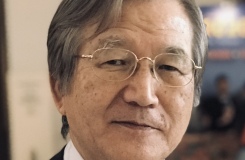 カリフォルニア大学サンフランシスコ校小児胸部心臓外科教授佐野俊二
カリフォルニア大学サンフランシスコ校小児胸部心臓外科教授佐野俊二佐野俊二の記事を見る
-
 社会福祉法人 旭川荘 ひらたえがお保育園 園長江田 加代子
社会福祉法人 旭川荘 ひらたえがお保育園 園長江田 加代子江田 加代子の記事を見る
-
 NPO法人 おかやまUFE 副理事長 ・NPO法人 おかやまUFE 事務局阪井 ひとみ・永松千恵
NPO法人 おかやまUFE 副理事長 ・NPO法人 おかやまUFE 事務局阪井 ひとみ・永松千恵阪井 ひとみ・永松千恵 の記事を見る
-
 社会学者 東京大学名誉教授 認定NPO法人ウィメンズアクションネットワーク(WAN)理事長 上野 千鶴子
社会学者 東京大学名誉教授 認定NPO法人ウィメンズアクションネットワーク(WAN)理事長 上野 千鶴子上野 千鶴子 の記事を見る
-
 外務省 国際保健政策室長 鷲見 学
外務省 国際保健政策室長 鷲見 学鷲見 学の記事を見る
-
 プロ・アダプティブ・サーファー藤原(旧姓:川上)智貴
プロ・アダプティブ・サーファー藤原(旧姓:川上)智貴藤原(旧姓:川上)智貴の記事を見る
-
 京都大学霊長類研究所 教授正高信男
京都大学霊長類研究所 教授正高信男正高信男の記事を見る
-
 社会医療法人石川記念会HITO病院緩和ケア内科統括部長大坂巌
社会医療法人石川記念会HITO病院緩和ケア内科統括部長大坂巌大坂巌の記事を見る
-
 東京医療学院大学保健医療学部教授上田 諭
東京医療学院大学保健医療学部教授上田 諭上田 諭の記事を見る
-
 「夢を叶える145」ライター宮村孝博
「夢を叶える145」ライター宮村孝博宮村孝博の記事を見る
-
 NPO法人 Anneの家 代表 美作地区里親会会員松本芳也・淳子夫妻
NPO法人 Anneの家 代表 美作地区里親会会員松本芳也・淳子夫妻松本芳也・淳子夫妻の記事を見る
-
 特定非営利活動法人あかね 代表理事中山 遼
特定非営利活動法人あかね 代表理事中山 遼中山 遼の記事を見る
-
 大阪市立総合医療センター 緩和医療科部長 兼 緩和ケアセンター長 大阪市立大学医学部臨床准教授 一般社団法人「こどものホスピスプロジェクト」常務理事 日本小児科学会専門医 英国カーディフ大学緩和ケア認定医(Certificate in Palliative Care) 日本緩和医療学会暫定多田羅竜平
大阪市立総合医療センター 緩和医療科部長 兼 緩和ケアセンター長 大阪市立大学医学部臨床准教授 一般社団法人「こどものホスピスプロジェクト」常務理事 日本小児科学会専門医 英国カーディフ大学緩和ケア認定医(Certificate in Palliative Care) 日本緩和医療学会暫定多田羅竜平多田羅竜平の記事を見る
-
 NPO法人 岡山マインド「こころ」/代表理事 一般社団法人お互いさま・まびラボ/副代表理事多田伸志
NPO法人 岡山マインド「こころ」/代表理事 一般社団法人お互いさま・まびラボ/副代表理事多田伸志多田伸志の記事を見る
-
 一般社団法人MY TREE代表理事 MY TREEペアレンツ・プログラムスーパーバイザー 認定フェミニストカウンセラー (公認心理師)中川和子
一般社団法人MY TREE代表理事 MY TREEペアレンツ・プログラムスーパーバイザー 認定フェミニストカウンセラー (公認心理師)中川和子中川和子の記事を見る
-
 兵庫県立ひょうごこころの医療センター精神科医師小田 陽彦
兵庫県立ひょうごこころの医療センター精神科医師小田 陽彦小田 陽彦の記事を見る
-
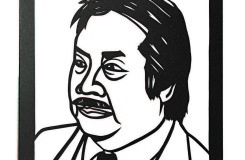 独立行政法人国立病院機構福山医療センター院長岩垣博己・堀井城一朗・矢野 平
独立行政法人国立病院機構福山医療センター院長岩垣博己・堀井城一朗・矢野 平岩垣博己・堀井城一朗・矢野 平の記事を見る
-
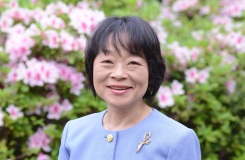 岡山大学社会文化科学研究科 研究科長 教授田中 共子
岡山大学社会文化科学研究科 研究科長 教授田中 共子田中 共子の記事を見る
-
 Civil Engineer (仕組みつくりの技術者)石田篤史
Civil Engineer (仕組みつくりの技術者)石田篤史石田篤史の記事を見る
-
 一般財団法人キヤノングローバル戦略研究所 研究主幹・経済学博士松山幸弘
一般財団法人キヤノングローバル戦略研究所 研究主幹・経済学博士松山幸弘松山幸弘の記事を見る
-
 岡山大学生殖補助医療技術教育研究センター ART教育研究部門長・教授舟橋 弘晃
岡山大学生殖補助医療技術教育研究センター ART教育研究部門長・教授舟橋 弘晃舟橋 弘晃の記事を見る
-
 医療法人サンズ理事長浅野 直
医療法人サンズ理事長浅野 直浅野 直の記事を見る
-
 株式会社ヘリオス 代表執行役社長CEO鍵本忠尚
株式会社ヘリオス 代表執行役社長CEO鍵本忠尚鍵本忠尚の記事を見る
-
 慶應義塾大学文学部人間科学専攻教授(医療人類学) McGill大学人類学部・医療社会研究学部Ph.D.北中淳子
慶應義塾大学文学部人間科学専攻教授(医療人類学) McGill大学人類学部・医療社会研究学部Ph.D.北中淳子北中淳子の記事を見る
-
 岡山大学病院 緩和支持医療科片山英樹
岡山大学病院 緩和支持医療科片山英樹片山英樹の記事を見る
-
 岡山市役所 保健福祉企画総務課松岡克朗
岡山市役所 保健福祉企画総務課松岡克朗松岡克朗の記事を見る
-
 近現代史研究家青木康嘉
近現代史研究家青木康嘉青木康嘉の記事を見る
-
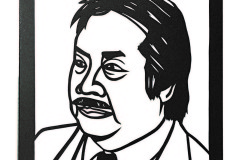 独立行政法人国立病院機構福山医療センター院長岩垣博己・長谷川利路・中島正勝
独立行政法人国立病院機構福山医療センター院長岩垣博己・長谷川利路・中島正勝岩垣博己・長谷川利路・中島正勝の記事を見る
-
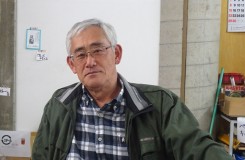 岡山高等学院 副校長 水野文一郎
岡山高等学院 副校長 水野文一郎水野文一郎の記事を見る
-
 社会の仕組み屋、社会の編集者石原 達也
社会の仕組み屋、社会の編集者石原 達也石原 達也の記事を見る
-
 一般社団法人SGSG理事長/中国学園大学子ども学部講師野村泰介
一般社団法人SGSG理事長/中国学園大学子ども学部講師野村泰介野村泰介の記事を見る
-
 一橋大学経済研究所 教授神林 龍
一橋大学経済研究所 教授神林 龍神林 龍の記事を見る
-
 特定医療法人自由会 理事 (社会福祉法人敬友会 理事、公益財団法人橋本財団 理事)橋本 健二
特定医療法人自由会 理事 (社会福祉法人敬友会 理事、公益財団法人橋本財団 理事)橋本 健二橋本 健二の記事を見る
-
 医療法人社団 岡山二人クリニック 理事長、医学博士林 伸旨
医療法人社団 岡山二人クリニック 理事長、医学博士林 伸旨林 伸旨の記事を見る
-
 フリーライター渡辺嗣郎(わたなべ しろう)
フリーライター渡辺嗣郎(わたなべ しろう)渡辺嗣郎(わたなべ しろう)の記事を見る
-
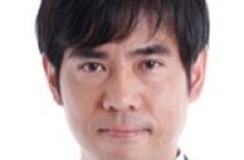 国立大学法人岡山大学 副理事(国際担当)横井 篤文
国立大学法人岡山大学 副理事(国際担当)横井 篤文横井 篤文の記事を見る
-
 ペンネームドクターX
ペンネームドクターXドクターXの記事を見る
-
 NPO法人 山村エンタープライズ 代表理事藤井裕也
NPO法人 山村エンタープライズ 代表理事藤井裕也藤井裕也の記事を見る
-
 キャンサー・ソリューションズ株式会社 代表取締役社長桜井 なおみ
キャンサー・ソリューションズ株式会社 代表取締役社長桜井 なおみ桜井 なおみの記事を見る
-
 AMDA(アムダ) グループ代表・認定非営利活動法人AMDA 理事長菅波 茂
AMDA(アムダ) グループ代表・認定非営利活動法人AMDA 理事長菅波 茂菅波 茂の記事を見る
-
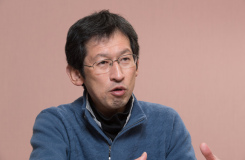 ふれあい歯科ごとう代表五島 朋幸
ふれあい歯科ごとう代表五島 朋幸五島 朋幸の記事を見る
-
 介護従事者髙田 浩一
介護従事者髙田 浩一髙田 浩一の記事を見る
-
 ケアマネ-ジャー・社会福祉士かえる ちから
ケアマネ-ジャー・社会福祉士かえる ちからかえる ちからの記事を見る
-
 五常・アンド・カンパニー株式会社 代表取締役社長慎 泰俊
五常・アンド・カンパニー株式会社 代表取締役社長慎 泰俊慎 泰俊の記事を見る
-
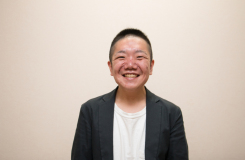 NPO法人 ポケットサポート代表理事三好 祐也
NPO法人 ポケットサポート代表理事三好 祐也三好 祐也の記事を見る
-
 医療法人 寺田病院 院長板野 聡
医療法人 寺田病院 院長板野 聡板野 聡の記事を見る
-
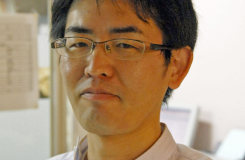 鳥取市立病院 地域医療総合支援センター 生活支援室 副室長、リハビリテーション部 副部長、歯科 医長目黒 道生
鳥取市立病院 地域医療総合支援センター 生活支援室 副室長、リハビリテーション部 副部長、歯科 医長目黒 道生目黒 道生の記事を見る
-
 鳥取市立病院地域医療総合支援センター長 鳥取市福祉部参与足立 誠司
鳥取市立病院地域医療総合支援センター長 鳥取市福祉部参与足立 誠司足立 誠司の記事を見る
-
 ペンネーム池井戸 高志
ペンネーム池井戸 高志池井戸 高志の記事を見る
-
 ペンネーム池田 出水
ペンネーム池田 出水池田 出水の記事を見る
-
 岡山大学大学院ヘルスシステム統合科学研究科教授松岡 順治
岡山大学大学院ヘルスシステム統合科学研究科教授松岡 順治松岡 順治の記事を見る
-
 鳥取市立病院 名誉院長田中 紀章
鳥取市立病院 名誉院長田中 紀章田中 紀章の記事を見る
-
 岡山大学大学院保健学研究科 副研究科長 教授齋藤 信也
岡山大学大学院保健学研究科 副研究科長 教授齋藤 信也齋藤 信也の記事を見る
-
 公益財団法人橋本財団 理事長、医学博士橋本 俊明
公益財団法人橋本財団 理事長、医学博士橋本 俊明橋本 俊明の記事を見る

